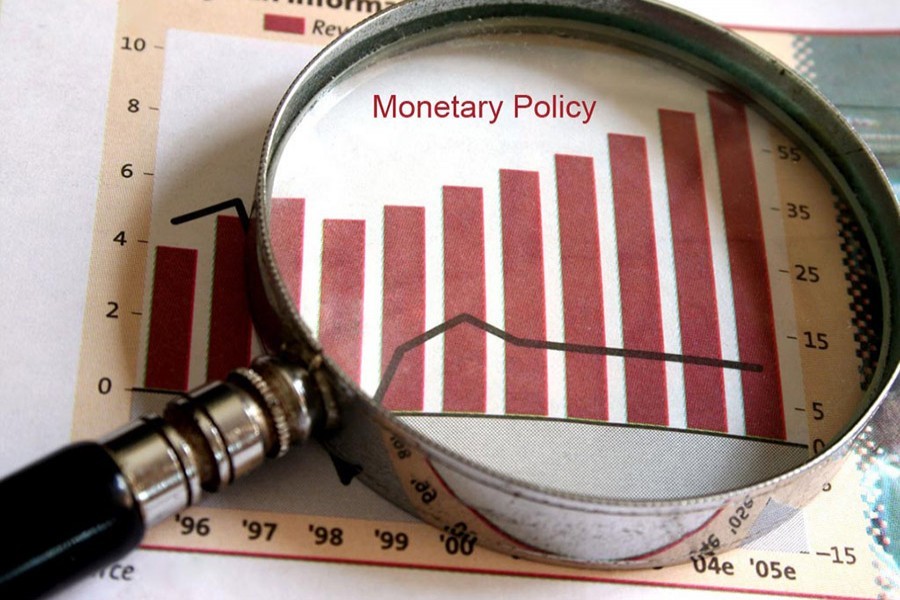Bangladesh's central bank is agog to launch the country's half-yearly monetary policy Sunday, while many targets last set for up to December have gone missing largely for global and local disarrays.
The monetary-policy targets were actually meant for containing the inflationary pressures on the economy, which surged significantly higher -- even touched nearly 10 per cent-during last few months of the calendar year to December.
Official statistics show broad-money programme up to December last was 10 per cent and up to November it had stood nearly 2.0-percent over June 2022. And it was 8.6 per cent over November 2021.
Net foreign-asset target set in the monetary policy statement (MPS) announced last June was minus 10.7 per cent. It was (minus) 12.42 per cent in November over June and (minus) 12.7 per cent over November a year earlier.
The target for the net domestic asset was 16.7 per cent up to December last, and it stood up to November at 5.77 per cent over June and 14.9 per cent over November 2021.
The Bangladesh Bank data are available up to November.
The target for domestic credit, consisting of both public and private sectors, was 16.7 and it reached 4.4 per cent in November over June and 15.79 per cent over the same period a year earlier.
And the target for private-sector credit was 13.6 per cent and achieved 4.11 per cent in November last over June and 13.97 per cent over November 2021.
Reserve-money target was 9.0 per cent and it achieved just (minus) 0.23 per cent in November last over June and 4.2 per cent over November 2021.
Central bankers say many monetary targets could not be achieved up to November, arguing that the main reason behind it was volatility on the foreign-exchange market. Global situation is also to blame.
Economists think that the monetary policy actually does not work as the central bank mainly gets down to stabilizing the forex market. They say ongoing monetary stances are to create fiscal dominance.
Dr Zahid Hussain, former lead economist at the Word Bank, says: "The ongoing monetary policy is to create fiscal dominance through supporting liquidity supports to the fiscal side from the central bank."
Dr Hussain observes that under the existing interest-cap regime the monetary policy actually does not work independently.
The BB should launch its monetary stances with priority to the interest as key instrument for the market, he told the FE.
Dr Mirza Azizul Islam, a former adviser of a caretaker government on finance and planning, suggests that the monetary-policy statement or MPS should be realistic and it should state real scenario of the money market.
"Such suggestion of the MPS may not be popular but the Bangladesh Bank should do it in the interest of the economy," he told the FE.
He says the current monetary policy is just feeding the government by "printing money".
Dr Mustafa K Mujeri, Executive Director at Institute for Inclusive Finance and Development (InM), says: "The assumptions that the MPS considered totally failed following external and domestic factors."
He suggests considering realistic assumptions both in domestic and external factors.
The monetary policy committee headed by Governor Abdur Rouf Talukder will sit today after lunch for finalizing the MPS for the next six months.


